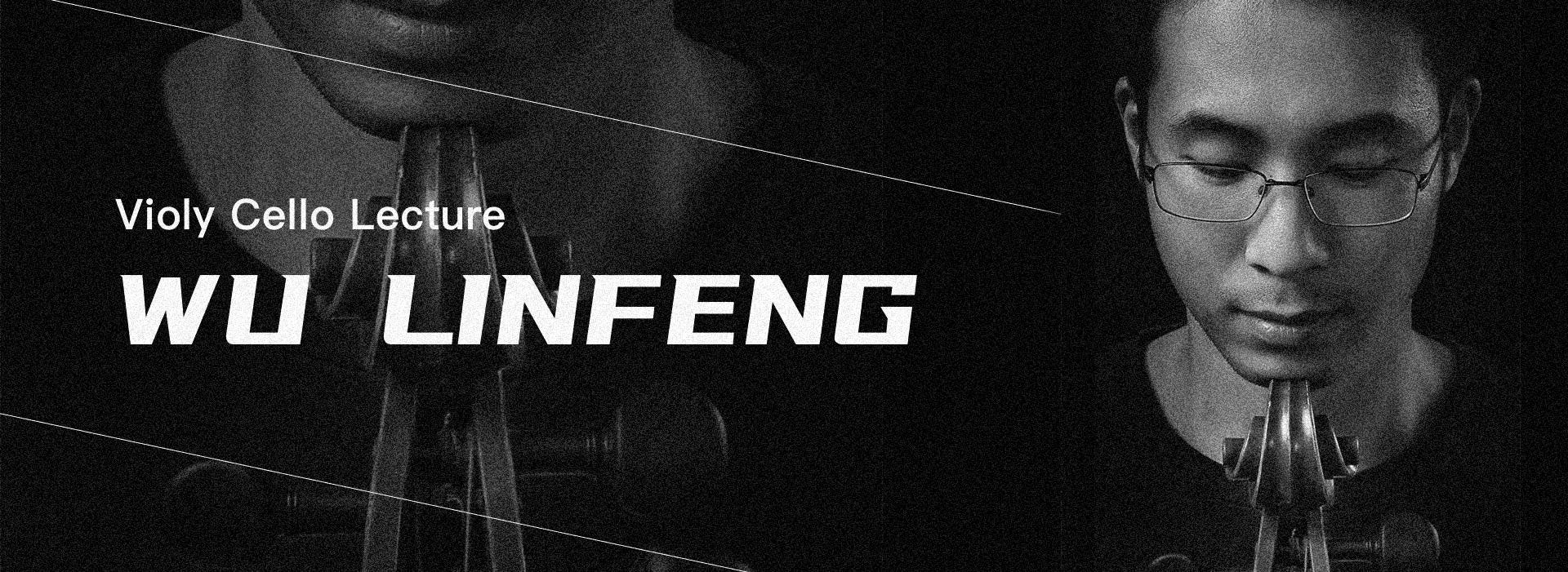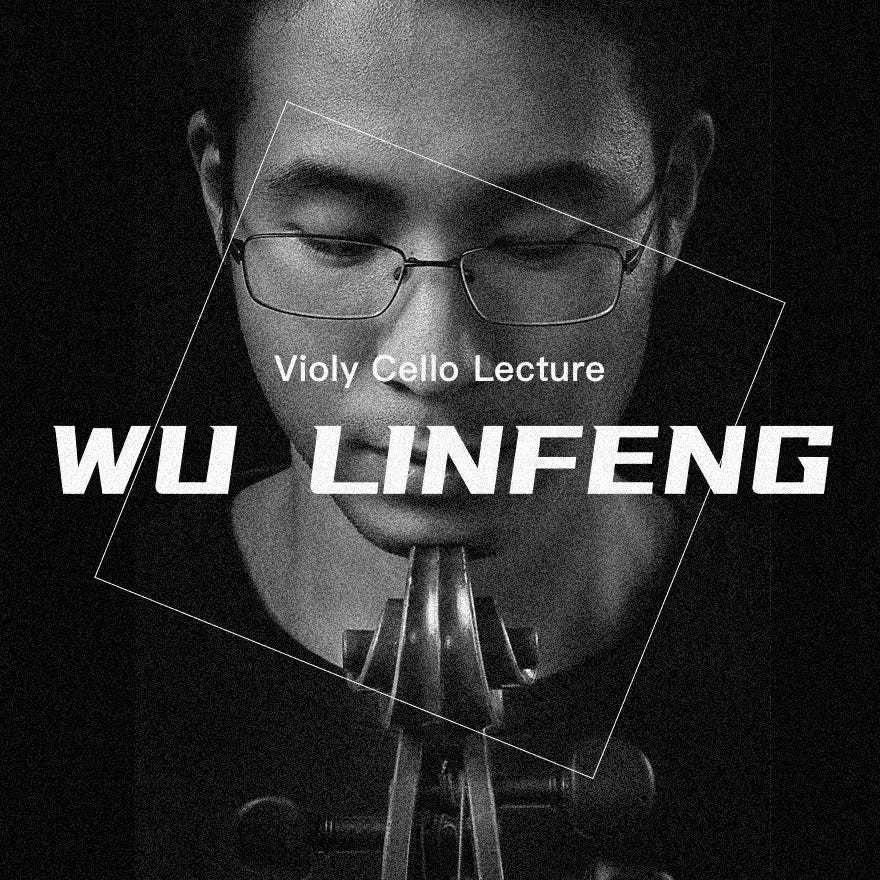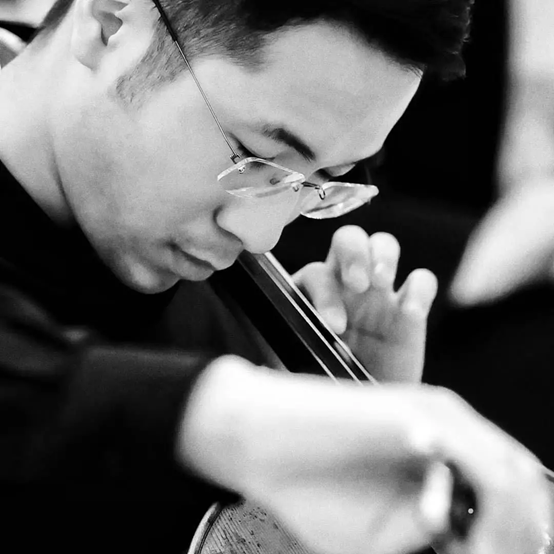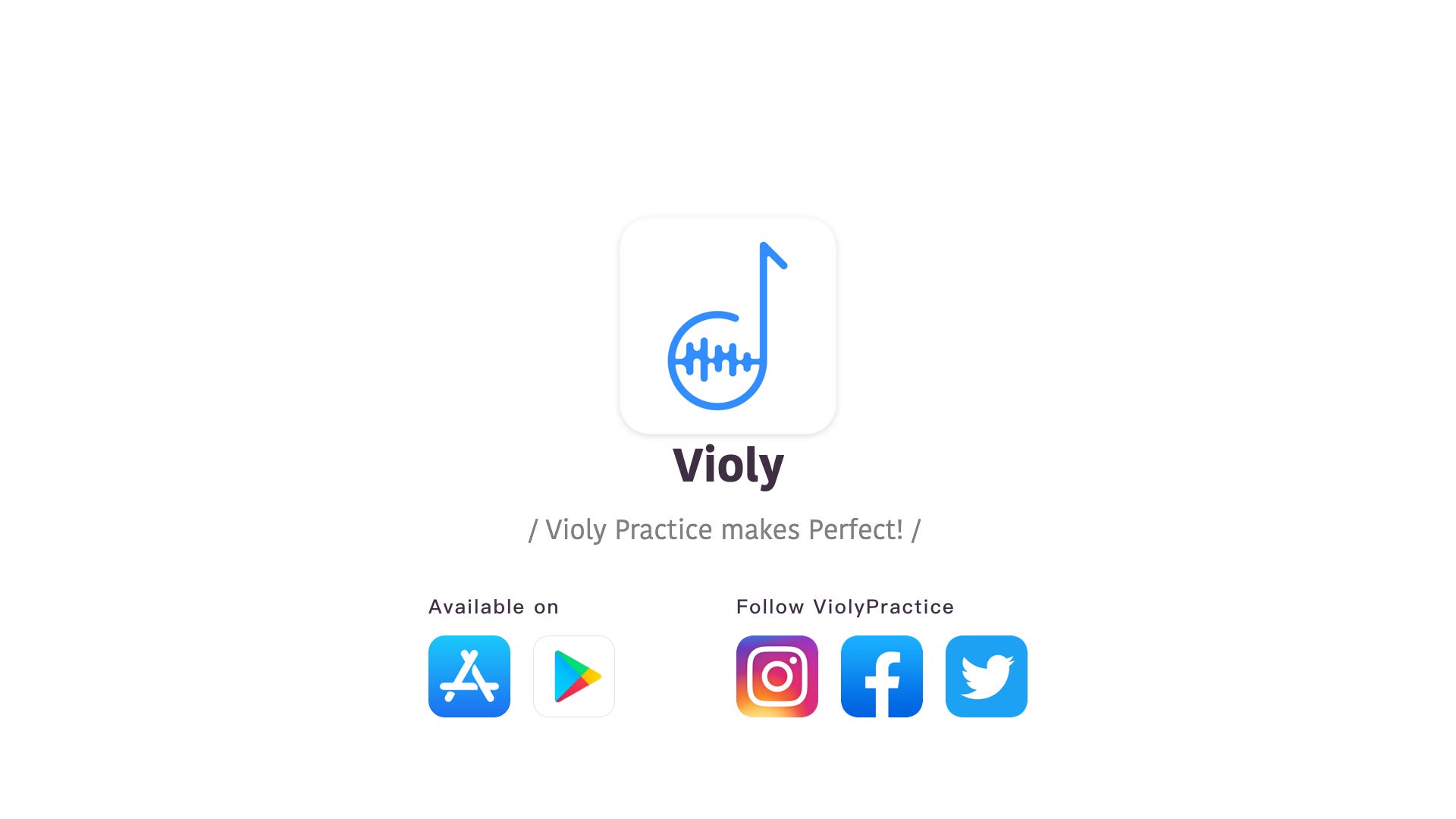Violy Cello Lecture | Wu Linfeng
Violy Cellist — Wu Linfeng

Wu Linfeng is the former head and chief cellist of Peking University Symphony Orchestra. He is also the founder of “Cello Lovers Union”, a famous Wechat official account. In this Violy lecture, he shared some of his experiences as a Peking University student with music talent, and some music educational views.
Content of Wu Linfeng’s lecture is as follows(edited in first person):
Hello everyone, I’m Wu Linfeng. I’m very glad to be given this chance to share some of my experience on music. I will divide my lecture into four parts: my cello learning experiences, what the students with art talent are like, my career choice, and the status quo of Chinese music education in my view.
My Cello Learning Experiences in Cello Lessons
My grandfather loves music very much and he is a collector of CDs. My father learned to play the violin when he was young and he is an amateur violinist himself. Once he heard a song with cello cover and became interested in the instrument, he intended to let me learn to play the cello instead of violin. This is a brief story about my road to cello. Since I grew up in a family that love music, and my father had some music training before, I have the chance to learn music with these two advantages.
I started to learn cello in 1995 and continued to take cello lessons until 2007, when I was about to go to the college. I was in Beijing Sun Youth Orchestra during the whole process of learning and got improved greatly through amounts of practicing and frequent performances. In the meanwhile, I participated in many competitions and was awarded the first prize in The 1st Ai Qin Prize Competition in China. This experience encouraged me a lot.
A Cello Teacher’s Explanation: What the Students with Art Talent Are Like
First, I need to make it specific that art students and students with art talent are totally different. Art students are those who major in art in college, for example, a student majoring in violin performing in College of Arts, Renmin University of China. As for students with art talent, they are those who study comprehensive majors but get admitted under the privilege because of art talents. I am a student with art talent myself and got admitted by Peking University under the privilege of 50 points dropping, which means if the enrollment score of Peking University is 650, I can enter the university with a score of 600.
Although students with art talent can be admitted under the privilege, they need to participate in rehearsals of college orchestra on the weekend. Besides, they also need to enter the stage and perform when there are activities on campus.
The privilege for students with art talent is changing over the past few years. The enrolling number of these students is dropping and the admission criteria is getting more strict. But students with art talent are still competitive in admission of some elite schools worldwide. On the other hand, these students may be easily remembered by others in social occasions because their talents are impressive. To be remembered in social occasions can be important in some way and this is a good beginning for your self-development.

My Career Choice As A Cello Teacher
Personally, I think what people should learn are knowledge, skills and ability. These elements are important for career choice.
The majors I studied at college are economics and law, and my university also taught me a series of abilities, like learning new skills, interpersonal communication, empathy and so on. To be honest, I tried different things when I just graduated. At the moment, a conductor I knew asked me if I want to give up cello, which I had learned for 17 years, and switch to my majors, which I had studied for just 4 years. He gave me some suggestions and I thought deeply myself, then I decided to be a cello teacher. In this way, I just combined my personal preference, self-competence and market demand together. The intersection of the three aspects for me is being a cello teacher.
Some people asked me if my job will be replaced by AI in the future. I think it is not easy for teachers and performers to be replaced.

A Cello Teacher’s View: The Status Quo of Chinese Music Education
As far as I know, many Chinese parents of the time have little knowledge of music. Since education in China is utilitarian in some way, Chinese parents lack art education. It is not likely for them to help their children in music learning. But I recognized one thing during my teaching that this situation will be improved in our next generation. Take Beijing for example, in an ordinary primary school, children who learn to play the instrument account for 1/3 to 1/2 of all students. This percentage is much higher than that in our generation.
Here I would like to recommend a book for parents, which is called Producing Excellence: The Making of Virtuosos. It provides a sociological view on the research of developing path of music learners from dozens of families.
It is normal for music learners and their parents to encounter some difficulties at the beginning of learning. It can be hard for most parents to identify if their children have talent in instrument playing, to decide how to help their children plan music learning path, and to know how to help their children in daily practice. Considering these problems, I can say that Violy app is very helpful since it can be an effective tool supervising students’ practice. I have tried some features of the app and can feel that within the product, there is a leading musical education concept.
At the end of my lecture, I would like share something related to my communication with other musicians and music educators worldwide. Some musicians from western countries find it astonishing that Chinese children can concentrate on one thing, like listening to instructions, for quite long time. It is almost impossible for children in their countries to sit still for two hours.
But from their comments I can find out that compared to Chinese children, children from western countries are likely to regard music as a part of life instead of a burden. For many western music learners, it is quite normal that their parents know a little music or play instruments as well, so there is a musical atmosphere at home and they love music naturally. Therefore, I usually tell parents of my students that if they want their children to learn well, they should let children love the instrument they play. Furthermore, parents should like music themselves.
I believe that with the development of society, Chinese children’s music learning road will become more and more smooth. They will enjoy better art education as well. That’s all for my lecture, thanks for your attention!
Have a HAPPY practice!!
More Violin Articles:
Teaching Violin Students to Read Key Signatures
Solfeges used in Violin Lessons
How to Choose Right Violin Strings
Things You Must Know About Violin Bowing
Tips for Proper Violin Maintenance
Also, check out violin sheet music on Violy App~
#ViolyPractice makes Perfect!!
Follow us on: Violy.app
